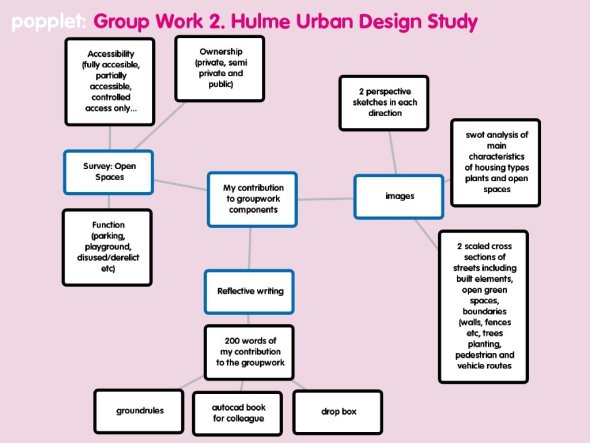We are delighted to see Popplet used by businesses, planners, food growers, community advocates, and educators: all keen to increase awareness and action to improve food security in their local communities and around the globe.
Food security and food sustainability are crucial issues facing all of us on both the local and global scale.
Food security is the term often used to recognize everyone’s right to enough healthy, affordable food to live properly.
Many believe that this will only be possible if we focus on food sustainability: the capacity of our food systems to produce enough healthy food with a low energy and fuel footprint, and where waste is minimized.
Here are six ways Popplet users are making sure more people can get access to healthy food for daily living.
1. Define your business mission statement
Onsite restaurant company Bon Appétit Management Company has always had a proud focus on food sustainability. Their catchline is “Food services for a sustainable future”. But after a quarter of a century in operation and now spanning 500 locations across the US, it was time for them to update what food sustainability really meant for the way they do business.
They reached out via social media and amongst their networks to encourage staff, stakeholders, customers, food growers and business influencers to revisit what food sustainability meant to them and to re-consider how BAMCo could incorprate these values into their business mission.
We were pleased to see Popplet used as a way to visually present all the comments and ideas they received:
As a result, the Bon Appétit Management Company celebrated their 25th anniversary with an updated business mission:
A sustainable future for food service means flavorful food that’s healthy and economically viable for all, produced through practices that respect farmers, workers, and animals; nourish the community; and replenish our shared natural resources for future generations.
No wonder they were recently recognized by Fast Company as one of the top 10 food business innovators.
2. Plan urban garden projects
Landscape urbanite and mirror-ball restorer (hey, ya gotta have hobbies!) Karl Barrett believes that “well designed space can improve ecological, social and economic opportunities within our rural and urban environments.”
Karl uses Popplet regularly to research, sketch and edit his work and studies as a third year landscape architecture Honors student.
For a group project looking at urban design in the UK Manchester area of Hulme, Karl converted a wordy project brief into a clear and concise popplet map that identified the available open spaces in the area and classified their current function, ownership and accessibility. You can easily see how this project model could be used by community groups or other landscape architects to identify where an urban garden could be built in a local community.
3. Monitor local access and affordability of healthy food
Students @Im_A_Potato_ and @WeiYangLee shared this incredibly thorough Popplet that looked at community wellbeing in their local neighborhood:
Food security is often measured at the local level by making sure all residents live within 10 minutes walk (about a third of a mile or half a kilometer) of a supermarket or grocery store, but it is also important to assess the cost of a healthy food basket of goods that could feed a typical family residing in the area. Im_A_Potato and WeiYangLee have done that in their Popplet: they have identified the barriers facing residents that live furthest from supermarkets and report that the local convenience stores are not an affordable option for daily grocery shopping.
4. Encourage individual action
Our Twitter follower @MissTomitaka is a geography teacher and global citizenship advocate. She prepared this Popplet to raise awareness, ignite passion and encourage individual action to address global food poverty and chronic hunger issues. It was also the inspiration behind this blog post!
5. Run a not-for-profit café
Titchfield Primary (Elementary) School in Hampshire, UK, is hard at work designing a dinosaur-themed café:
We were impressed to see some consideration given to how to spend the money raised by the Dinosaur Cafe. The local food bank was identified as a potential charity beneficiary, but level-headed student Amy argues that first, the café should pay back its suppliers. Will Miss E donate the food she bought so all the money can go to charity, or will the students build a sustainable not-for-profit model that can repay its suppliers first and then donate the profits to the Food Bank? Perhaps more will be revealed in the TPS parent newsletter!
6. Educate the next generation’s leaders
At New Zealand’s Tamaki Primary School, Mrs Aireen’s Year 7 and 8 class have been ‘researching the roles, rights and responsibilities that people have to maintain balanced and sustainable food sources’:
Food sustainability will continue to be a global and local issue that will require all of us to consider our own role and responsibilities. It is great to see how Popplet is being used to help businesses, individuals, communities, and student classes discuss and take action around food security.
Do you have a food sustainability or food security-related Popplet? Share it on our Facebook page or tweet the popplet link to us! Have another topic idea? Let us know if you have another global-to-local issue you would like to see being discussed with Popplet.
